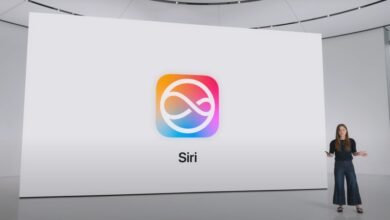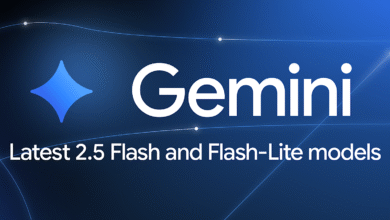Google Gemini’s AI Image Model Gets a ‘Bananas’ Upgrade

▼ Summary
– Google is launching Gemini 2.5 Flash Image, an AI image model that allows more precise photo editing based on natural language prompts while preserving details like faces and backgrounds.
– The update is available to all users in the Gemini app and to developers via Google’s AI platforms starting Tuesday, aiming to compete with OpenAI’s image tools and attract more users.
– Google claims the model is state-of-the-art on benchmarks like LMArena, where it previously gained attention under the pseudonym “nano-banana” for its high-quality editing capabilities.
– The tool is designed for consumer use cases such as home and garden visualization and supports multi-turn conversations and combining multiple references in a single prompt.
– Google has implemented safeguards to prevent misuse, including restrictions on generating non-consensual intimate imagery and adding watermarks and metadata identifiers to AI-generated images.
Google has significantly upgraded its Gemini chatbot with a new AI image model, offering users enhanced precision in photo editing. This strategic move aims to compete directly with OpenAI’s widely used image tools and attract more users to its ecosystem. The update, known as Gemini 2.5 Flash Image, is now available to all users through the Gemini app and accessible to developers via API, Google AI Studio, and Vertex AI.
The new model allows for highly detailed image modifications based on natural language instructions while maintaining consistency in elements like faces and animals, a common challenge for many competing platforms. For example, while other tools might distort backgrounds or facial features when editing clothing colors, Gemini’s technology preserves these details with impressive accuracy.
Social media buzz has already surrounded the tool, especially after it appeared anonymously on the evaluation platform LMArena under the playful pseudonym “nano-banana.” Google later confirmed its involvement, highlighting the model’s top-tier performance across multiple benchmarks.
According to Nicole Brichtova, a product lead at Google DeepMind, the update represents a major leap in both visual quality and instruction-following capabilities. She emphasized that the improvements make edits more seamless and the outputs more practical for everyday use.
The race for dominance in AI image generation is intensifying among tech giants. OpenAI’s GPT-4o image generator recently drove massive engagement for ChatGPT, while Meta has partnered with Midjourney to bolster its own offerings. Google’s latest innovation may help narrow the user gap; ChatGPT currently boasts over 700 million weekly users, compared to Gemini’s 450 million monthly users.
Designed with consumer applications in mind, Gemini’s image model supports tasks like home and garden visualization. It also excels in combining multiple references, such as furniture, room layouts, and color schemes, into a single, coherent image.
Despite its advanced capabilities, Google has implemented strict safeguards to prevent misuse. Past controversies led the company to temporarily suspend its AI image generator after inaccuracies emerged. Now, it enforces policies against generating non-consensual intimate imagery and adds visible watermarks and metadata identifiers to AI-generated content. These measures aim to address growing concerns around deepfakes and digital authenticity, though their effectiveness in casual social media scrolling remains uncertain.
(Source: TechCrunch)





